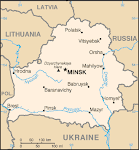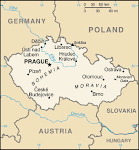
This new film could potentially be a theatrical first for Russian cinemas: one that glorifies a fervently anti-Bolshevik Tsarist figure who has historically been vilified in Soviet textbooks and presents the Bolsheviks as the villain. Below is an abridged Washington Times article released 24 November 2008, coincidentally the two-year anniversary of Aleksandr Litvineko's death from radiation poisoning. Pay close attention to how the Bolsheviks are portrayed, as no Putin-endorsed film movie could ever purely criticize the ancestors of the greatest geopolitical catastrophe of the century.
To the Communists, he was an archvillain: a defender of the oppressors, a class enemy. And for decades, that's the way films and textbooks portrayed Adm. [Aleksandr] Kolchak, a leader of the fight to roll back the 1917 Russian Revolution, which gave birth to the Soviet Union. Now comes a $20 million state-supported movie epic that glorifies Kolchak as a failed savior of Russia. Such a reversal might seem odd, coming less than four years after Vladimir Putin was decrying the collapse of the Soviet Union as "the greatest geopolitical catastrophe of the century."
But since the beginning of the Putin presidency in 2000, and continuing under his hand-picked successor, Dmitry Medvedev, the Kremlin has tried to be all things to all Russians, championing the country's Soviet past while at the same time resurrecting symbols of the once-despised czarist era. Rich in Russian flags, warships and Russian Orthodox religious rituals, the movie reinterprets the checkered career of Kolchak, who led an anti-communist government and held the title of "supreme ruler."
Kolchak's courage and faith are driven home repeatedly in "Admiral," from his steely command against the Germans in a World War I naval battle - to his rejection of a blindfold before being shot by a firing squad midway through the 1917-1923 Russian Civil War. To underscore his religious devotion, the film shows his body being dumped in a cross-shaped hole cut in the ice of a Siberian river. Kolchak is played by Konstantin Khabensky, hero of the "Night Watch" vampire movies popular in the West. The film takes him from the privileged world of an officer in the czar's navy through the increasingly beleaguered efforts of his so-called "White Russians," the counterrevolutionary forces in Siberia, to his execution in 1920.
Partially financed by a government eager to replace post-Soviet disgruntlement with patriotism and pride, Russia's resuscitated movie industry has produced a string of films - several of them major box-office and critical flops - that glorify the country's past. But "Admiral" is the first to canonize a figure who fought the founders of the Soviet state. It stops short of rejecting Russia's Soviet past. But its popularity strongly suggests that, as the Communist era recedes and its staunchest defenders die off, the czarist past is a greater draw for millions of Russians. Shortly before the movie opened, Russia's Supreme Court declared that Czar Nicholas II, his wife and children, shot in 1918, were victims of political repression, officially rehabilitating them. "Admiral" is Kolchak's rehabilitation, depicting him as a resolute man with a deep faith in God and unshakeable loyalty to Russia.The Bolsheviks, as the Communists who would run the Soviet Union for 74 years called themselves, get much rougher treatment on the screen in "Admiral" than Russian moviegoers are used to seeing. In one scene, Bolsheviks bind a block to a White Russian officer and drop him into the sea.
One theme of the film - and of Russia's current rulers - is that the biggest threat to Russia comes neither from Reds nor Whites, but from abroad. It is a French general and Czech forces who, in the end, deliver Kolchak to the Bolsheviks for execution. And some of the Communist villains look more Georgian or Central Asian than ethnic Russian.
Below is the trailer of the film with English subtitles.




























